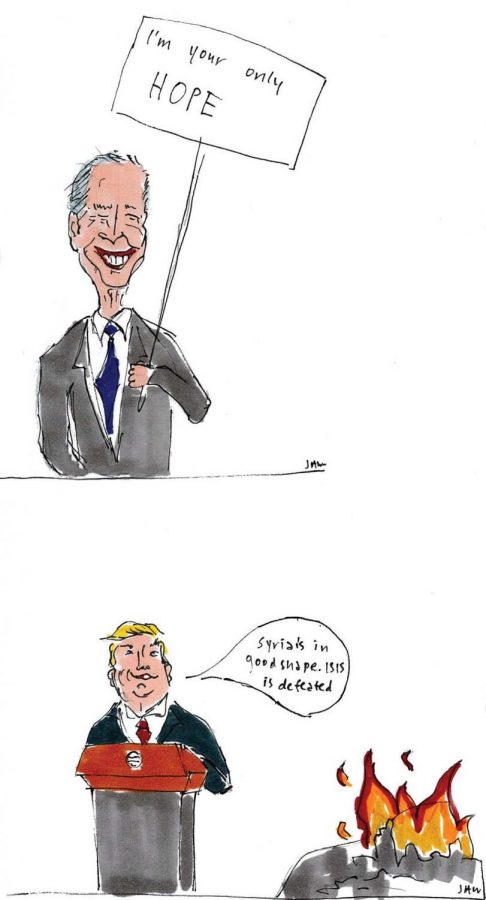The Linchpin of the Middle East
On October 6, the White House announced the President’s plan to pull US forces out of northern Syria, a highly volatile region with fighting between Turkish forces and the Kurdish Syrian Democratic Forces (which until now received support from the United States). This withdrawal comes at a critical time in the Syrian Civil War, with Turkey becoming more aggressive in Kurdish controlled areas in northern Syria. This untimely removal of U.S. troops will certainly prove fatal to our relationship with the Kurds – we’ll not only lose a strategic toehold in the region, of which there are few, but also we turn our backs on allies who have faced persecution and destruction at the hand of the Syrian government, ISIS, and other regional actors.
Although this act by President Trump seems sudden, it was a key feature of his 2016 presidential election campaign: getting the U.S. out of our “endless wars.” This characterization of the current conflict in Syria is, to the President’s credit, emblematic of a larger issue in the Middle East. The War in Afghanistan is going on its 18th year – no one wants another such war to emerge in Syria. However, we have learned from Afghanistan that we cannot pull out of Syria so quickly if we want to maintain security and stability in the region.
The fear that ISIS will return if our troops are not in the region is justified, especially as the U.S. was instrumental in defeating them in this area. Fear plays an important role in the Syrian Civil War, and the United States has proven its ability to instill fear in terrorist organizations. Shervan Darwish, the Spokesperson of the Manbij military, a group involved with Kurdish military forces, said that the United States exit will, “give a morale boost to ISIS’s sleeper [c]ells and will create a vacuum that ISIS will certainly use.”
Another major reason? The inevitable return of our adversaries in the war. Part of the hesitation to exit Afghanistan after two decades has been the fear of a resurgence of the Taliban. Syria faces a similiar dilemna, but instead of the Taliban, the threat of Turkish incursion lies across the border. Less than a week after the announced withdrawal of U.S. forces from Syria, the Turkish military began to make aggressive advancements into Kurdish land, even shelling the nearby positions of retreating U.S. soldiers. Unfortunately for the Kurds, Turkey is not the only force to be reckoned with. The Kurds also have to face the oppressive, openly hostile Syrian government, backed by the United States’ biggest threat, the Russian Federation.
If the United States’ exit from Syria is fully carried out, we will enable Russia and Turkey to unleash hell onto the already vulnerable Kurds. We as a nation must consider those who will continue to lose loved ones when contemplating our involvement in foreign affairs, and whether or not we should intervene if we possess the ability to do so. It is the United States’ ethical duty to step in and defend those who cannot fully defend themselves, especially when we have the capability to do so. And when the Kurds have done so much for us, we have every obligation to do what we can for them.













